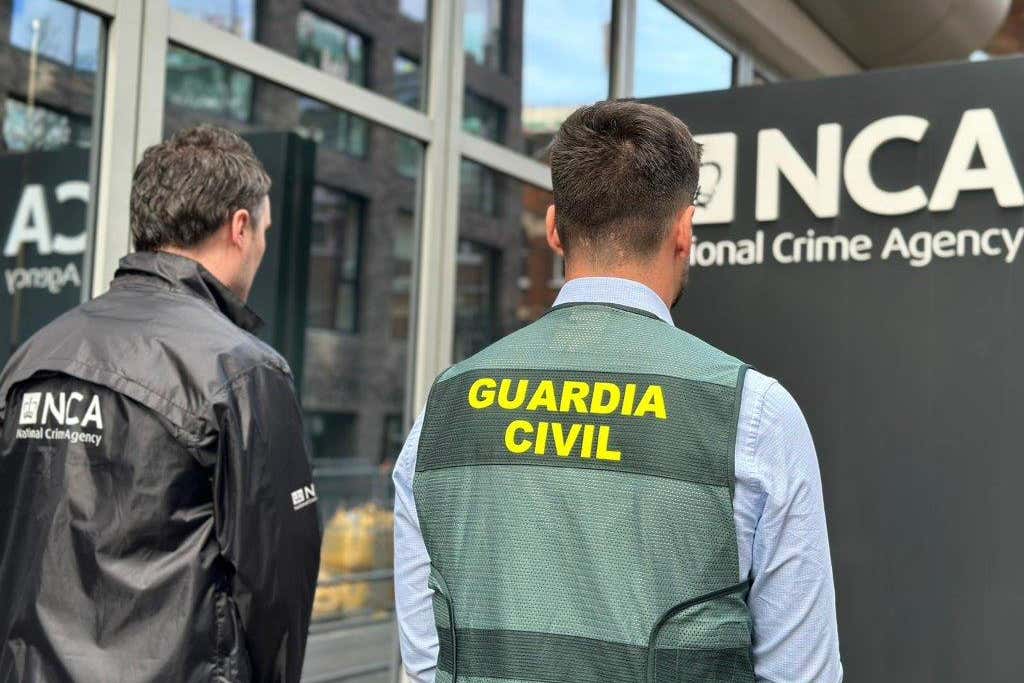More than 700 firearms recovered in UK in joint operation with Spanish police
So far, 703 firearms have been seized in the UK after a five-year operation involving the National Crime Agency and Spain’s Guardia Civil.

More than 700 firearms have been recovered in the UK after a five-year operation with police in Spain to stop easily convertible guns from entering the country.
So far, 703 firearms have been recovered in the UK, and there have been 74 arrests, 50 convictions and 133 premises searched.
The scheme targeting forward-venting blank firearms (FVBF), which are illegal to possess or import to the UK but can be traded lawfully in some parts of mainland Europe, has involved the National Crime Agency (NCA) and Guardia Civil – which has jurisdiction in Spain for the national control of firearms.
Charles Yates, the NCA’s deputy director, said: “Very significant levels of harm have undoubtedly been prevented with this ground-breaking work.
“Each of these 700 firearms had the potential to fall into the wrong hands and be used by criminals to further their offending or, at worst, take a life.”
The guns, which are attractive to criminals because they are cheap, have been recovered as both converted and unconverted weapons by UK police forces, Border Force and the NCA.
The NCA said that of the 703 cases, 20 involved actual or intended manufacture or conversion of weapons or ammunition.
There were 11 cases of firearms which were being sent to people with mental health issues and seven cases involving people holding extremist views or who presented a potential terrorism threat.
In four cases there were clear indications of onward firearms supply, four other cases involved drugs supply, four cases involved explosives and in one investigation a machine gun was seized from the suspect who had bought a blank firer.
One of the “highest harm” cases featured a man who was jailed for 11 years after officers found 26 firearms at his home, some were even stored in his three-year-old’s bedroom, according to the NCA.
“We have used our reach, influence and relationships overseas, where many serious and organised crime threats come from, to stem the flow of these popular, easily convertible guns and then we and policing have pursued the people who bought them online.”
The scheme – codenamed Project Vizardlike – involved working with international organisations to stop the weapons being shipped to the UK, seizing weapons at the border and identifying those who had already bought them.
The NCA’s National Firearms Targeting Centre (NFTC) led a coordinated response to identify suspects before providing cases to UK police forces, or the agency’s own investigators.
The Guardia Civil undertook real-time analysis of more than 2,000 sales of FVBFs to foreign citizens across Europe to identify suspicious transactions.
Some sales included the use of falsified details in an effort to avoid being detected.
When suspicious purchases were identified, they were immediately flagged bilaterally or through Europol to law enforcement or security forces in countries where the illicit buyers lived.
A parallel Guardia Civil investigation – called Operation Diana – was run in collaboration with Europol.
It led to police taking action in nine different countries and the largest proportion of these related to UK sales.
The scheme has also cut off UK customers from suppliers in the Czech Republic and France and also enabled prosecutors in both countries to exchange evidence where suspects had tried to mask their purchases by using false details, addresses and disguised bank transactions.
Assistant Chief Constable Tim Metcalfe, NPCC lead for the criminal use of firearms, said: “The scale of the recoveries and arrests shows the threat is real but crucially that, through the determination and hard work of those involved, we won’t shy away from protecting communities from the threat of illegal firearms wherever it may arise from.”
General Valentin Diaz, head of the intelligence headquarters (UCE3) of the Spanish Guardia Civil said: “Firearms trafficking is a problem that affects the security of all European countries, which is why international co-operation is essential to fight effectively this threat.
“An example of this is Operation Diana/Vizardlike, thanks to which we have avoided in excess of 700 firearms reaching the criminals.”
Bookmark popover
Removed from bookmarks